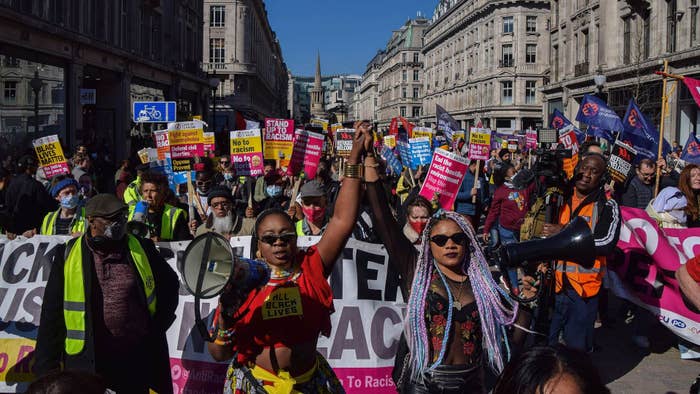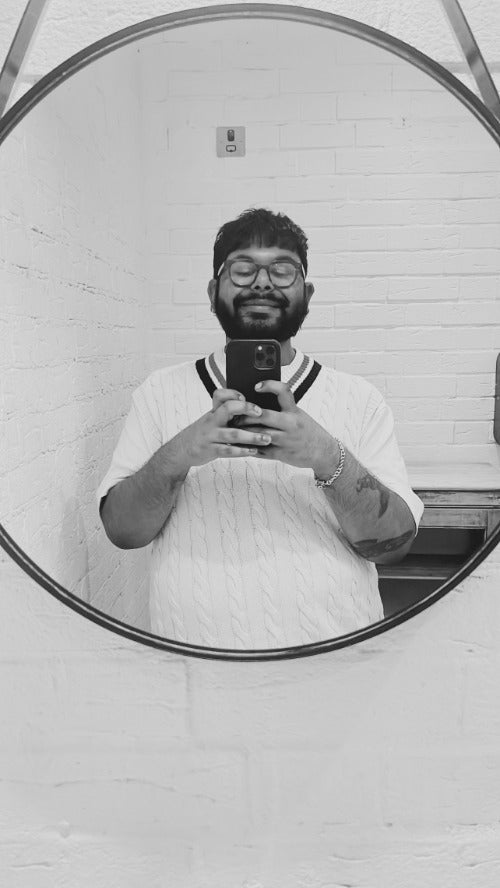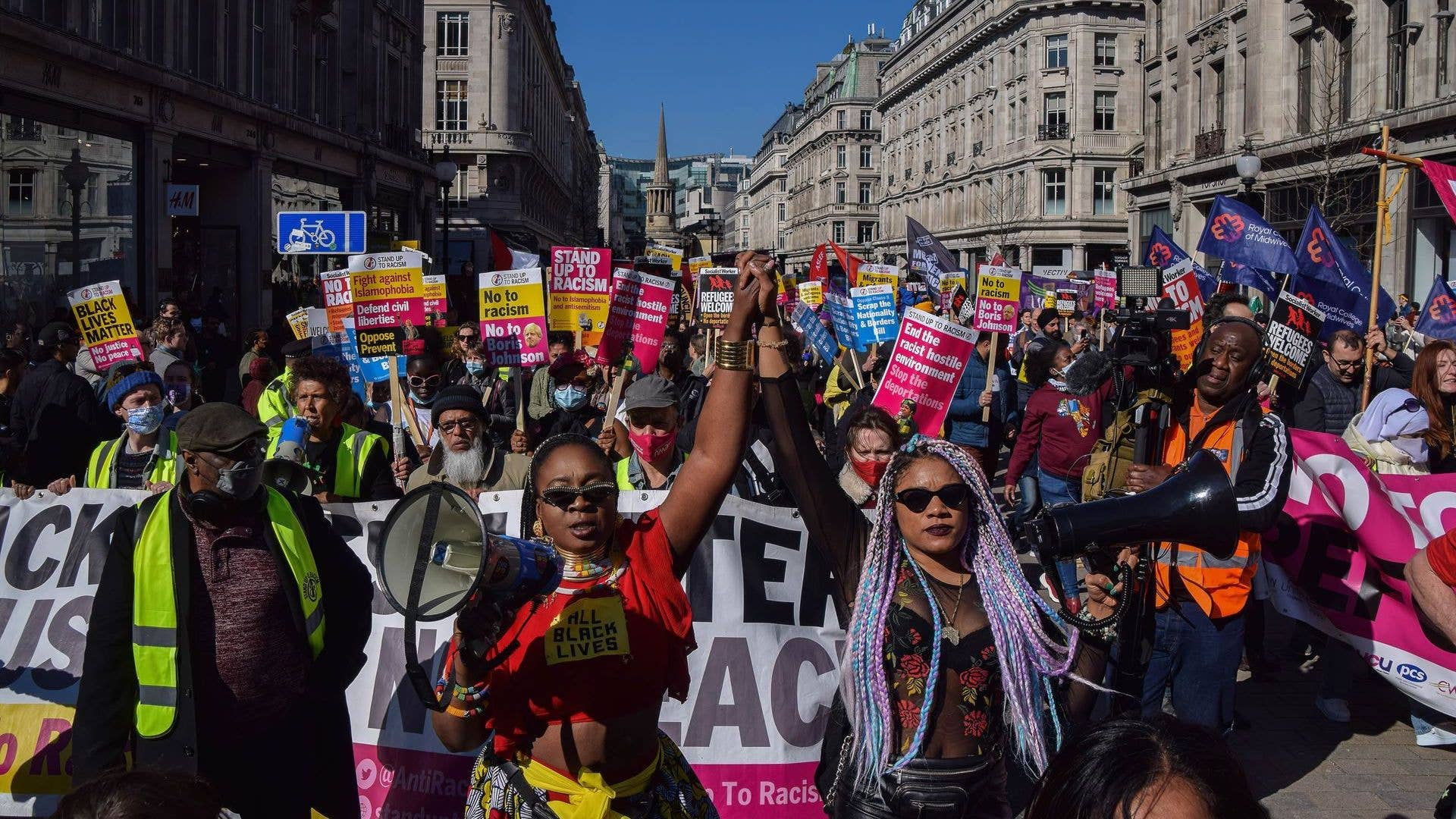
A national civil rights group to promote justice and equality for Black people in Britain has launched, two years after the death of George Floyd.
Led by some of the country’s most influential figures from the worlds of business, law, arts, and social justice, the Black Equity Organisation (BEO) aims to dismantle systemic racism in the UK. It is hoped that the organisation will have the same scale as the National Association for the Advancement of Coloured People (NAACP) in the United States, founded in 1909 by Black progressives.
“This is a generational moment; history will view us harshly if we don’t do something,” the actor, director, playwright and BEO board trustee Kwame Kwei-Armah told The Guardian. “It is not about just that moment—as a community, we have experienced the Windrush scandal, the Grenfell Tower tragedy and the more recent distressing Child Q incident. Our launch and existence is focused on creating the change that will ensure these stop happening.”
The group aims to focus on economic empowerment, improving education and health outcomes, fighting racial discrimination, and enhancing representation across society, as well as providing housing access and opportunities for Black Britons throughout the UK.
The board of trustees includes Shadow Foreign Secretary David Lammy MP, the academic David Olusoga, chief executive Karen Blackett, business leader Dame Vivian Hunt, and artistic director Kwame Kwei-Armah, who will work together with grassroots and community organisations to increase equity for Black Britons on a bigger scale.
Amid the global wave of anti-racist protests which ensued after Floyd’s murder, Lammy met with Hunt and others back in July 2020. The group felt there wasn’t a national organisation that reflected the state of Black Britain, and responded to the problems.
A previous report by The Guardian also found that 95% of pupils of Black and mixed ethnicity had witnessed racist language at school, and almost half of them said they believed racism was the biggest obstacle to academic achievement.
“We don’t want to be apologetic about using the language of institutional systemic barriers facing Black Britons, because the data tells its own story. We have to ensure a positive substantive experience and lived experience for every child in the UK to reach their full potential. It’s going to take multiple years to actually make progress. But if we don’t have a more systemic approach, we won’t see progress.”
Hunt noted that the BEO’s strategy to tackle systemic racism would be evidence-based. The organisation has conducted its own investigation and has received support from the likes of Sky, the communications firm WPP, some of the country’s leading law firms, and the charitable foundation Lankelly Chase.
“I’ve seen the highs and the lows of the Black experience in Britain,” Hunt added. “And so my faith is with the British people, that they have a huge sense of fairness and equity, intrinsic in everything we stand for and our values. What Black families want for their children is what all families want for their children.”

